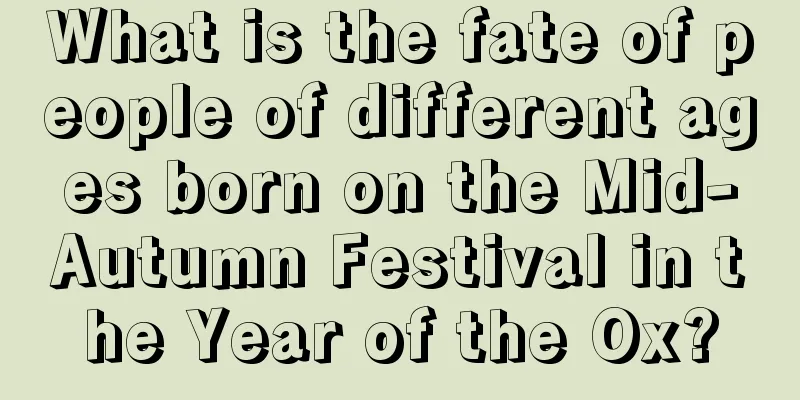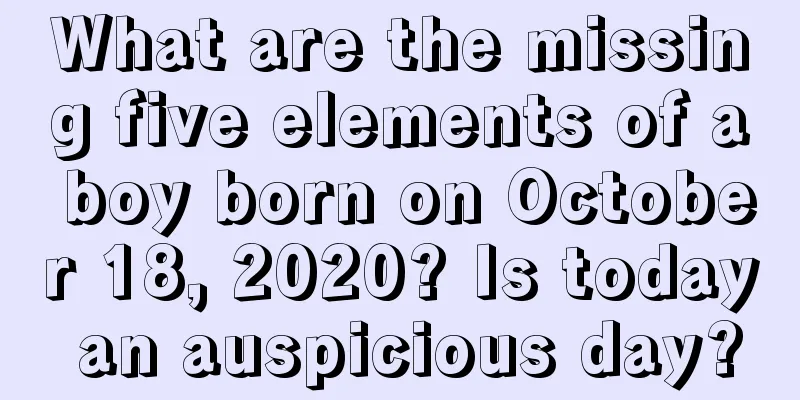How much should we give as New Year’s money? What are the sayings about it?

How much should we give as New Year’s money? What are the sayings about it? The happiest thing for children during the Spring Festival is to receive red envelopes. If you want to know more related content, please search in the 2019 Spring Festival special topic carefully compiled by Shuimoxiansheng.com!How much New Year’s money should be given?In folk culture, lucky money symbolizes warding off evil spirits and blessing peace. The original purpose of giving lucky money was to suppress evil and ward off evil spirits. Because people believe that children are easily harmed by evil spirits, they use New Year's money to ward off evil spirits. New Year’s money is just for good luck, and there is no strict regulation on how much money to give. It depends on each family’s own habits. Historically, there are many kinds of New Year's money, which are usually distributed by elders to younger generations during the countdown to the New Year to ward off evil spirits. It contains the elders' concern and sincere blessings for the younger generations. The other type is the New Year’s money given by younger generations to the elderly. The “Sui” in this New Year’s money refers to age, and it is meant to express the hope that the elderly will live a long life.What are some common sayings about lucky money?1. Suppressing the evil spirit <br /> Legend has it that in ancient times there was a little demon called "Sui", with a black body and white hands. It would come out to harm people on New Year's Eve every year. People were afraid that the evil spirit would harm their children, so they lit up the lights and sat up all night, which was called "guarding against the evil spirit". In Jiaxing Prefecture there was a family named Guan. The couple had a son in their old age and regarded him as the apple of their eye. On New Year’s Eve, they played with their children for fear that evil spirits would harm them. The child wrapped eight copper coins in red paper, unwrapped and rewrapped them, and played with them until he went to bed. He then placed the eight copper coins next to his pillow. The couple dared not close their eyes and stayed by their child's side all night long. In the middle of the night, a strong wind blew open the door and blew out the lights. When the short black man touched the child's head with his white hand, a bright light suddenly appeared beside the child's pillow. The evil spirit quickly retracted its hand and ran away screaming. The Guan couple told everyone how they scared away the evil spirit by wrapping eight copper coins in red paper. Everyone also learned to wrap eight copper coins in red paper and give them to the children to put next to their pillows after the New Year’s Eve dinner. Sure enough, the evil spirit never dared to harm the children again. Therefore, people call this money "money to ward off evil spirits". Because "祟" (suì) and "岁" (sui) are homophones, it has become known as "lucky money" over the years. The money for children is called "Ya Sui Money", while the money for the elderly is called "Ya Sui Money". The “lucky money” given to the elderly is meant for them to stop getting older and live longer.2. Suppressing the fright <br /> Derived from the ancient “suppressing the fright”. It is said that in ancient times there was a ferocious beast called "Nian", which would come out at night every 365 days to harm humans, animals and crops. Children are afraid, so adults light firecrackers to drive away "Nian" and comfort the children with food, which is called "suppressing the fright". As time went by, it evolved into using currency instead of food, and by the Song Dynasty, there was "money to calm the nerves". According to historical records, Wang Shaozi was traveling south and was carried away by bad guys. He screamed on the way and was rescued by the imperial carriage. Song Shenzong awarded him the "golden rhinoceros coin to calm his nerves". Later it developed into "lucky money". 3. Winning Money "Victory coins" originated in the Western Han Dynasty and were minted until the late Qing Dynasty and early Republic of China, but were not circulated on the market. The front of the coins usually had auspicious words such as "Long live the emperor" and "Get rid of disasters and eliminate evil" and auspicious patterns such as dragons and phoenixes, turtles and snakes, and Pisces. It is an ancient coin used as a lucky item or ward off evil spirits by the Han people. As an ornament worn by children, its original meaning was mainly to suppress evil spirits and ward off disasters, and to celebrate and pray for blessings. "Lucky money" was also used as baby bathing money (money given to children after their one-month-old baby's bath), and later evolved into "lucky money" for the Spring Festival. |
Recommend
Check the auspiciousness and inauspiciousness of New Year’s Day 2019. Is New Year’s Day a good day?
Check the auspiciousness and inauspiciousness of N...
Is it auspicious to place the bed on June 8, 2020? Where is the lucky position of the God of Happiness today?
Introduction: Generally, it is necessary to choose...
Can I sign the contract on the fifth day of the tenth lunar month in 2021? Is it suitable to sign a contract?
The tenth month of the lunar calendar belongs to t...
Is it a bad idea to start renovation on the ninth day of the twelfth lunar month in 2017?
Starting construction on a renovation is a big eve...
Is it a good idea to place your bed on April 15th of the lunar calendar in 2020? Check the auspicious position of the God of Wealth on May 7th!
Introduction: You need to choose an auspicious day...
Is it suitable to get married the day before Jingzhe in 2020? How many days are left before Jingzhe in 2020?
Introduction: Generally, you need to choose an aus...
Is April 15th of the leap lunar calendar in 2020 an auspicious day for haircut? Do I need to choose a day to get a haircut?
Haircut only refers to the first time a newborn ba...
Is the third day of the fourth lunar month in 2020 an auspicious day? Is it a good day to pray for blessings?
There are a lot of people praying every day, but n...
Is it okay to offer sacrifices on the 25th day of the third lunar month in 2018? What are the particulars of the sacrifice?
Sacrifice is a traditional folk activity in my cou...
Do children born on the 22nd day of the seventh lunar month have a good life? Is fate good or bad?
Introduction: In our country, there is not only a ...
Is the 17th day of the seventh lunar month in 2019 a suitable day for marriage?
In fact, for traditional people, the first step i...
Can’t have sex during the Winter Solstice in 2019? Analysis of proverbs related to the Winter Solstice and the weather!
Introduction: Winter Solstice is one of the 24 sol...
Query the location of the God of Wealth at different times on the 26th day of the third lunar month in 2020
The lunar calendar is different for different day...
Can I get married on the 14th day of the sixth lunar month in 2018?
The sixth month of the lunar calendar is the seas...
When is Thanksgiving 2021? What is the meaning?
Thanksgiving is a holiday shared by the United Sta...









